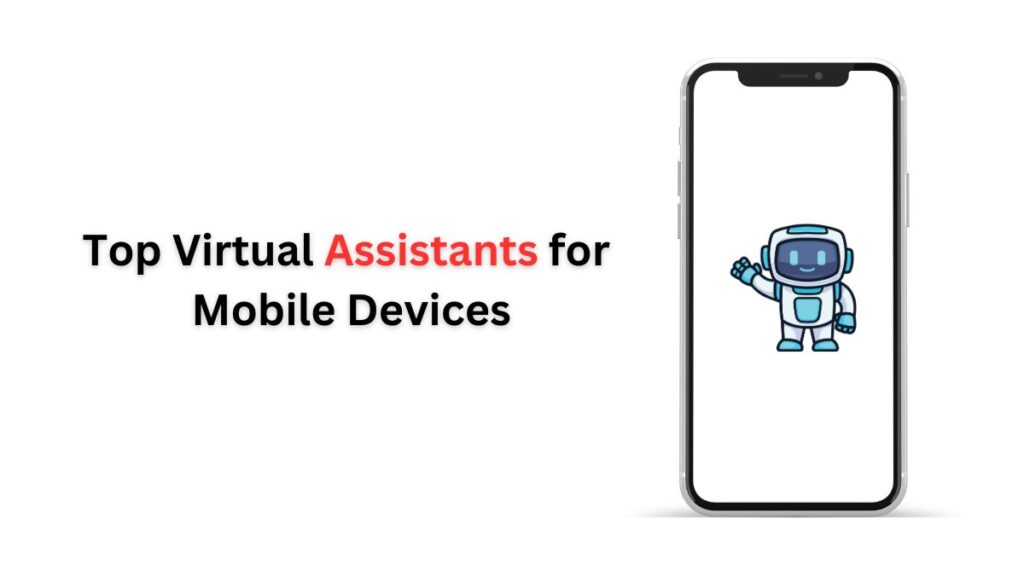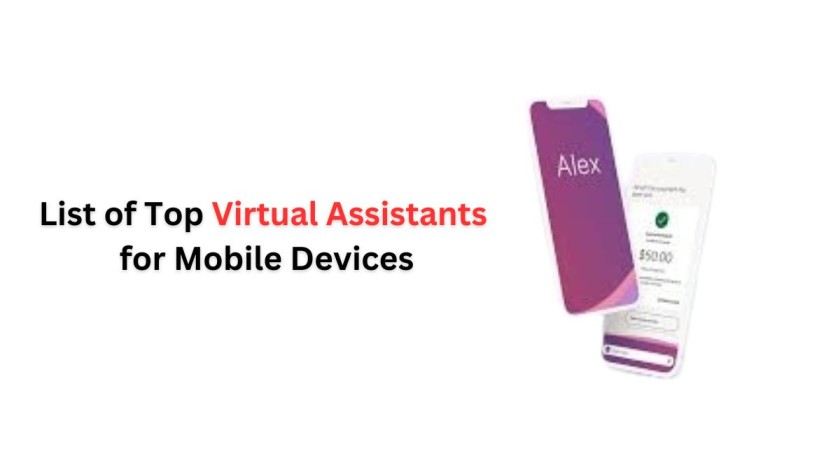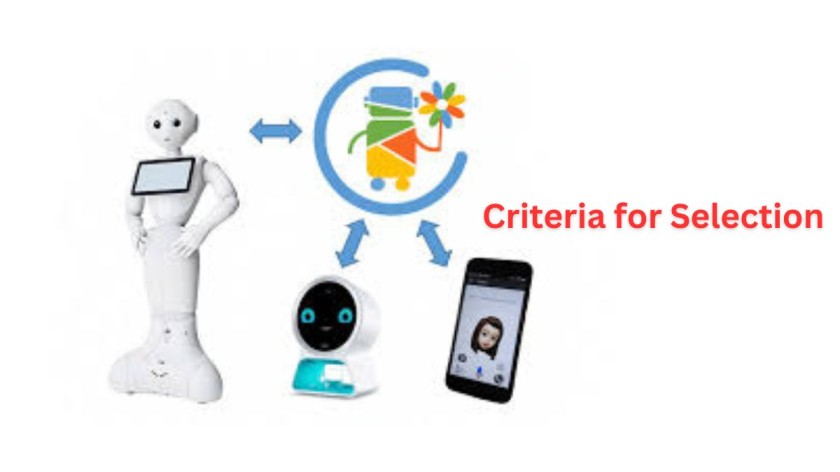Table of Contents
Introduction:
In today’s modern and fast-paced world, virtual assistants have become an integral part of enhancing productivity, streamlining tasks, and simplifying daily life. With the rise of artificial intelligence (AI) technology, virtual assistants have undergone significant advancements and evolved to become smarter, more intuitive, and more capable than ever before. From scheduling appointments to setting reminders, sending messages, making calls, and even controlling smart home devices, virtual assistants have revolutionized the way we interact with our smartphones and tablets.

When it comes to mobile devices, there are several top contenders in the realm of virtual assistants. These AI-powered assistants are designed to make our lives easier and more convenient by providing personalized assistance and performing tasks on our behalf. Some of the most popular virtual assistants for mobile devices include Siri for Apple devices, Google Assistant for Android devices, and Alexa for Amazon devices. Each of these virtual assistants has its unique set of features and capabilities, and users can choose the one that best suits their needs and preferences.
In summary, virtual assistants have become an essential tool for modern-day living, and with the advancements in AI technology, the possibilities for their usage are endless. Whether you need help with your daily tasks or want to control your smart home devices, virtual assistants are here to make your life easier and more convenient.
The Power of Virtual Assistants for Mobile Devices:
Virtual assistants are advanced computer programs that are powered by artificial intelligence (AI) and are designed to perform various tasks and assist users through voice commands, text input, or gestures. These digital assistants are equipped with sophisticated algorithms that enable them to understand natural language inputs and learn from user interactions to deliver personalized assistance.
They can perform a wide range of functions, including scheduling appointments, sending messages, making phone calls, setting reminders, providing directions, and answering questions, among others. Virtual assistants are constantly evolving and becoming more advanced, and they are increasingly being integrated into various devices and platforms, such as smartphones, smart speakers, and home automation systems.
Criteria for Selection:
To identify the top virtual assistants for mobile devices, we considered various factors including:
- Functionality: The range of tasks and commands that the virtual assistant can perform.
- Accuracy: The accuracy and reliability of the virtual assistant’s responses and actions.
- Integration: Compatibility and integration with popular mobile operating systems and apps.
- User Experience: The overall user experience and ease of use of the virtual assistant interface.
- Innovation: Ongoing updates, improvements, and innovations in virtual assistant technology.
List of Top Virtual Assistants for Mobile Devices:

- Google Assistant: Google Assistant is one of the most popular virtual assistants available for mobile devices, offering a wide range of features and capabilities. From answering questions and providing information to controlling smart home devices and making reservations, Google Assistant is a versatile and reliable companion for Android users.
- Apple Siri: Siri is Apple’s virtual assistant for iOS devices, known for its integration with Apple’s ecosystem and seamless functionality across Apple devices. Siri can perform tasks such as sending messages, making calls, setting reminders, and providing personalized recommendations, making it a valuable tool for iPhone and iPad users.
- Amazon Alexa: While primarily known for its smart speakers, Amazon Alexa is also available as a virtual assistant for mobile devices through the Amazon Alexa app. With Alexa, users can control smart home devices, play music, check the weather, shop online, and more, making it a versatile and convenient option for Amazon Echo users.
- Microsoft Cortana: Cortana is Microsoft’s virtual assistant, available on Windows devices as well as mobile platforms. Cortana can perform tasks such as sending emails, scheduling meetings, setting reminders, and providing personalized recommendations, leveraging Microsoft’s expertise in productivity and AI.
- Samsung Bixby: Bixby is Samsung’s virtual assistant, integrated into Samsung Galaxy devices. Bixby offers features such as Bixby Voice, Bixby Vision, and Bixby Routines, allowing users to control their devices, access information, and automate tasks using voice commands and AI-powered capabilities.
Implications and Future Outlook:
Virtual assistants for mobile devices are constantly evolving, with new features, improvements, and integrations being introduced regularly. As AI technology continues to advance, virtual assistants are expected to become even more intelligent, intuitive, and indispensable tools for mobile users around the world.
Conclusion:
In conclusion, the top virtual assistants for mobile devices are transforming the way we interact with our smartphones and tablets, offering convenience, efficiency, and assistance at our fingertips. Whether you’re an Android user, an iOS enthusiast, or a fan of other mobile platforms, there’s a virtual assistant out there to meet your needs and enhance your mobile experience. As we look ahead, the future of virtual assistants is bright, with AI-driven innovations poised to redefine the possibilities of mobile computing and connectivity.
Read more- Comparison of Best Tablet Brands in the Worldwide
FAQ-
What are assistants for mobile devices?
Virtual assistants for mobile devices are AI-powered software programs designed to assist users with various tasks and activities on their smartphones and tablets. These assistants can perform functions such as answering questions, setting reminders, sending messages, making calls, and controlling smart home devices, among others.
How do assistants work on mobile devices?
Virtual assistants work by processing voice commands, text input, or gestures from users and providing responses or performing actions based on those commands. These assistants use artificial intelligence algorithms to understand user queries, access relevant information, and execute tasks seamlessly.
What can assistants for mobile devices do?
Virtual assistants for mobile devices can perform a wide range of tasks, including but not limited to:
-Answering questions and providing information
-Setting reminders and alarms
-Sending messages and making calls
-Providing weather forecasts and traffic updates
-Playing music and podcasts
-Controlling smart home devices
–Setting calendar appointments and reminders
-Providing directions and navigation assistance
-Making reservations and bookings
Which mobile platforms support assistants?
Virtual assistants are available on various mobile platforms, including Android, iOS, and Windows. Each platform has its virtual assistant, such as Google Assistant for Android, Siri for iOS, and Cortana for Windows devices.
How do I activate and use a virtual assistant on my mobile device?
To activate a virtual assistant on your mobile device, you typically need to wake up the device and invoke the assistant using a voice command (e.g., “Hey Siri” for Siri on iOS devices). Alternatively, you can open the virtual assistant app or access it through a dedicated button or shortcut on your device. Once activated, you can interact with the assistant using voice commands, text input, or gestures.
Are assistants for mobile devices secure?
Virtual assistants for mobile devices prioritize user privacy and security by implementing measures such as data encryption, authentication protocols, and user consent mechanisms. However, users should exercise caution when sharing sensitive information or performing transactions through virtual assistants and ensure that their devices are protected with strong passwords and security features.
Can assistants for mobile devices understand multiple languages?
Many virtual assistants for mobile devices support multiple languages and dialects, allowing users to interact with the assistant in their preferred language. Users can typically configure the language settings for the virtual assistant through the device settings or the assistant app.
Can assistants for mobile devices be customized?
Yes, virtual assistants for mobile devices often offer customization options that allow users to personalize their experience. This may include configuring preferences, setting up routines, adding skills or actions, and integrating with third-party apps and services to extend functionality.
How do virtual assistants for mobile devices differ from each other?
Virtual assistants for mobile devices differ in terms of features, capabilities, integration with specific platforms, and user experience. Each assistant may have unique strengths and weaknesses, depending on factors such as the underlying technology, development team, and ecosystem support.
What are the future trends for virtual assistants for mobile devices?
The future of virtual assistants for mobile devices is expected to involve advancements in natural language processing, contextual understanding, personalized recommendations, and integration with emerging technologies such as augmented reality and wearables. Additionally, virtual assistants may become more proactive and predictive in anticipating user needs and providing proactive assistance.

